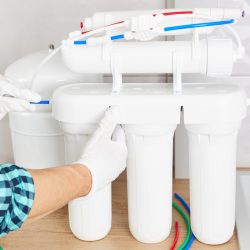If you already have well water, it's possible you've noticed some strange tastes or smells from it. If this makes it hard to drink, then a water filter seems like the obvious answer. What about running it through your fridge? Can a refrigerator filter well water? We've checked with water filtration experts for all the details.
A refrigerator filter does not make any water safe from bacteria or disease. Public water systems are treated and tested, and private wells should be too. However, a refrigerator filter may improve the taste or quality of already-safe drinking water.
Keep reading and we'll explain why a fridge may be able to improve the taste of your well water. We'll also explain why it may not. This article covers how a fridge filter works and what it filters out. Finally, we'll look at some of the problems that are more common in well water and some solutions. Read more and learn all about how to filter your well water for the best quality and taste!
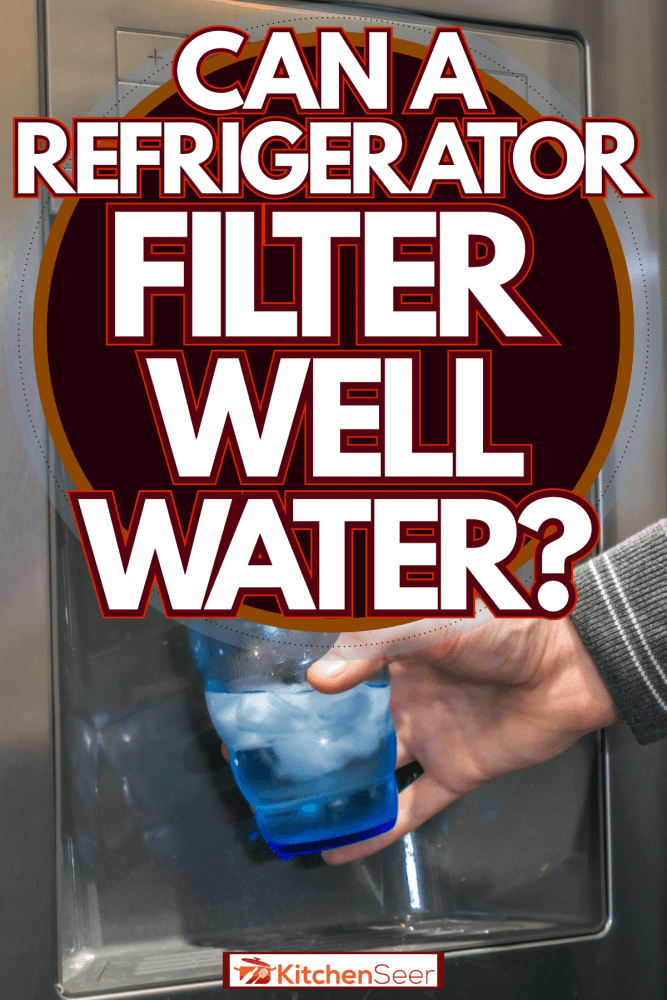
Can A Refrigerator Filter Well Water?
Refrigerator water filters have become commonplace in many homes. Drinking cold water straight from the fridge rather than the sink is something many people do. But is the filter good enough to use for well water?
The answer becomes a bit complicated. But the short answer is: yes. That is, depending on what you need to filter out.
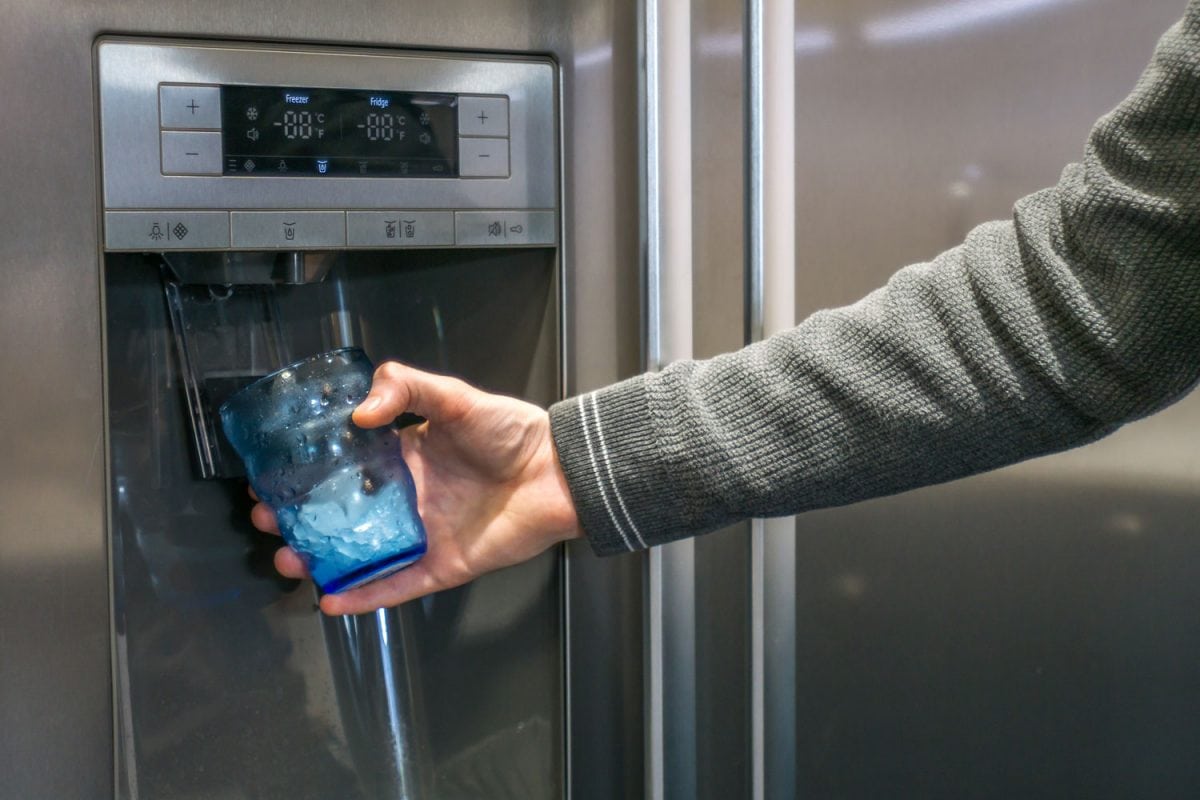
A refrigerator filter is perfectly adequate to use with well water. But the water supply must still be tested and treated.
And these filters don't do much for minerals. They're best for removing chlorine. And that's something not usually found in well water anyway.
The filter won't do much to prevent bacteria. You should test your water regularly to monitor these. And, of course, protect your well. Prevent runoff and contaminants.
Depending on what's in the water, you might be able to get rid of some things that affect the smell or taste. So, if using a filter makes your water taste better, then enjoy!
But don't count on it to ensure the water is safe. No filter can be depended on to stop bacteria. That's why testing is important.
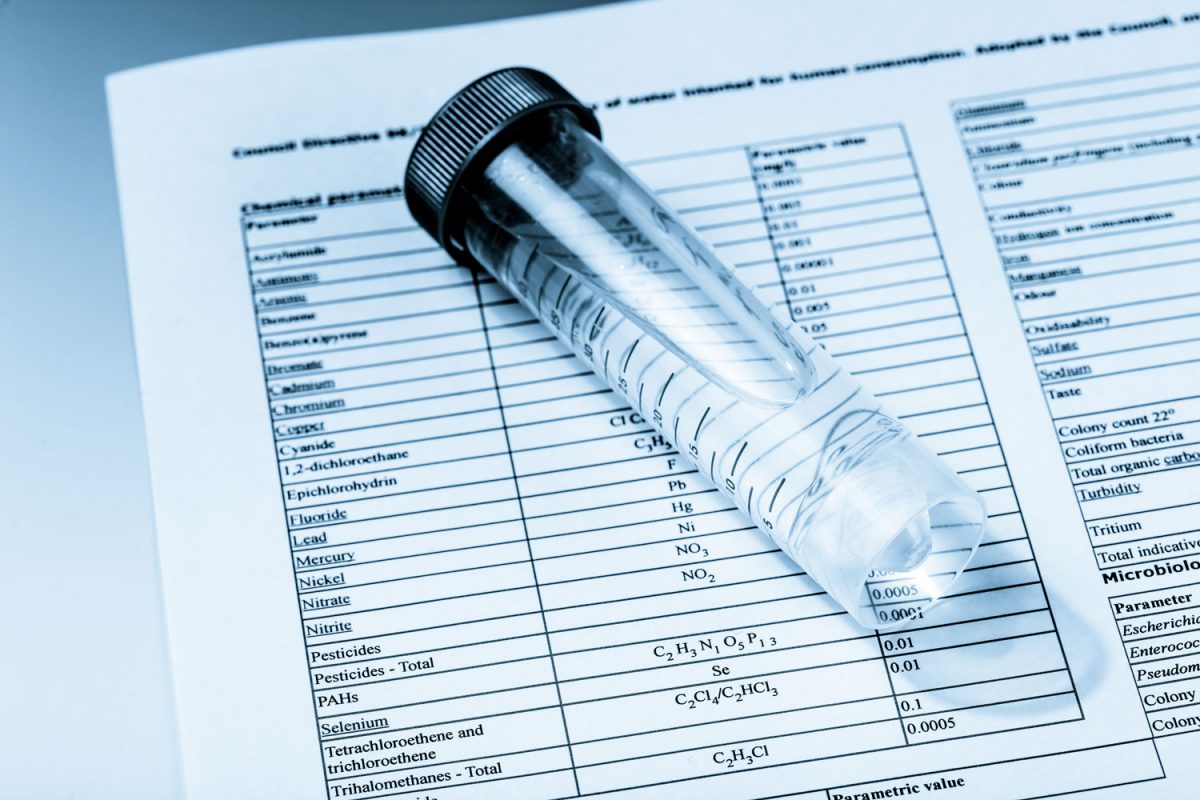
In short, if you like using the filter, keep doing so. But to improve the taste or quality of the water, consider options such as a water softener to remove minerals.
And if you're worried about water safety, you may want to install a reverse osmosis ultraviolet system. This kitchen system filters more than 100 contaminants out so that you don't have to worry about what's hiding in your water.
How Does A Water Filter Work In A Refrigerator?
Most refrigerator water filters use carbon. The contaminants in the water stick to the carbon. Carbon has a big surface area which makes it easy for many things to cling to the surface.
That carbon is also usually wrapped in another outer material. As water flows over it, that material works to remove debris and sediment.
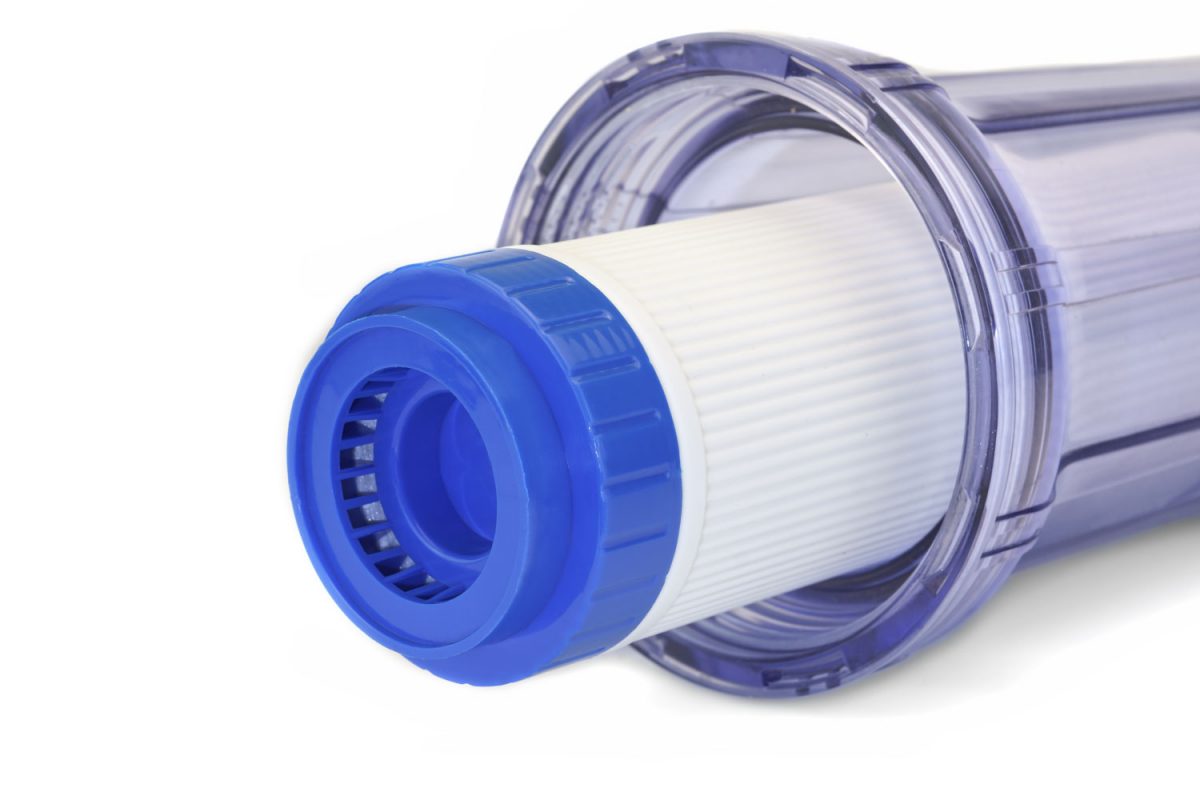
How well they filter typically depends on their micron rating. Each filter has a micron rating. This number describes the size of particles it can keep out.
Microns are a unit of measurement. A large micron rating indicates only very large particles get stopped by the filter. As a result, little is actually filtered.
Similarly, a small micron rating means most things are stopped by the filter. Only particles smaller than the rating of the filter can pass through. The lower the number, the better the filter.
Most refrigerator filters are rated about 20 microns. This isn't going to keep out bacteria like salmonella.
It may help with some minerals that can affect taste or smell. But a water softener system is typically more effective. Minerals that occur in well water can come in various sizes. So, how much your filter actually catches can vary.
For the most part, fridge filters are effective for chlorine. Like minerals, chlorine mostly affects the taste and not actual water safety. But chlorine is typically a problem in treated "city" water, not well water.
Problems With Well Water
Well owners should already be testing their water once a year. This helps make sure that there aren't unsafe levels of dangerous toxins in the first place. Of course, this is something a fridge filter would be unable to fix anyway.
In many cases, however, well water is perfectly safe. It's only a problem for drinking because of those strange tastes or smells it can have. These come from high levels of minerals, limescale, rust, and more.
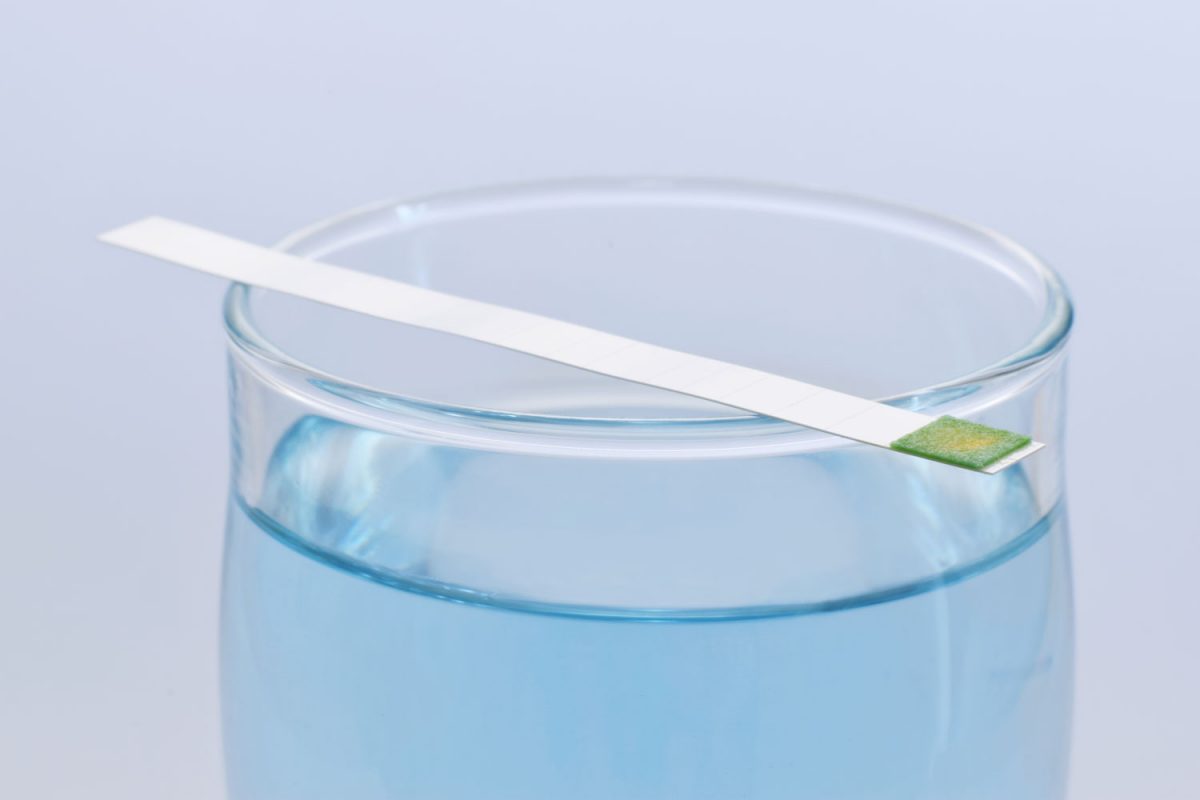
Since well water comes directly from the ground, it can pick up lots of things on the way. In most places, the soil and rocks cause well water to have lots of these additives.
Of course, what you find in the water and what amount changes based on location. However, it lines up pretty well with what's common in the soil and rocks for the area.
As a general rule, even "high" levels of these items are safe in your water. Health concerns that would suggest avoiding these minerals are rare, though possible. But for the average person, a little extra iron in their water won't do any harm.
However, it can affect the water quality. While safe to drink, many people simply don't like the taste of hard water (and most well water is also hard water). It can also be hard on appliances and plumbing.
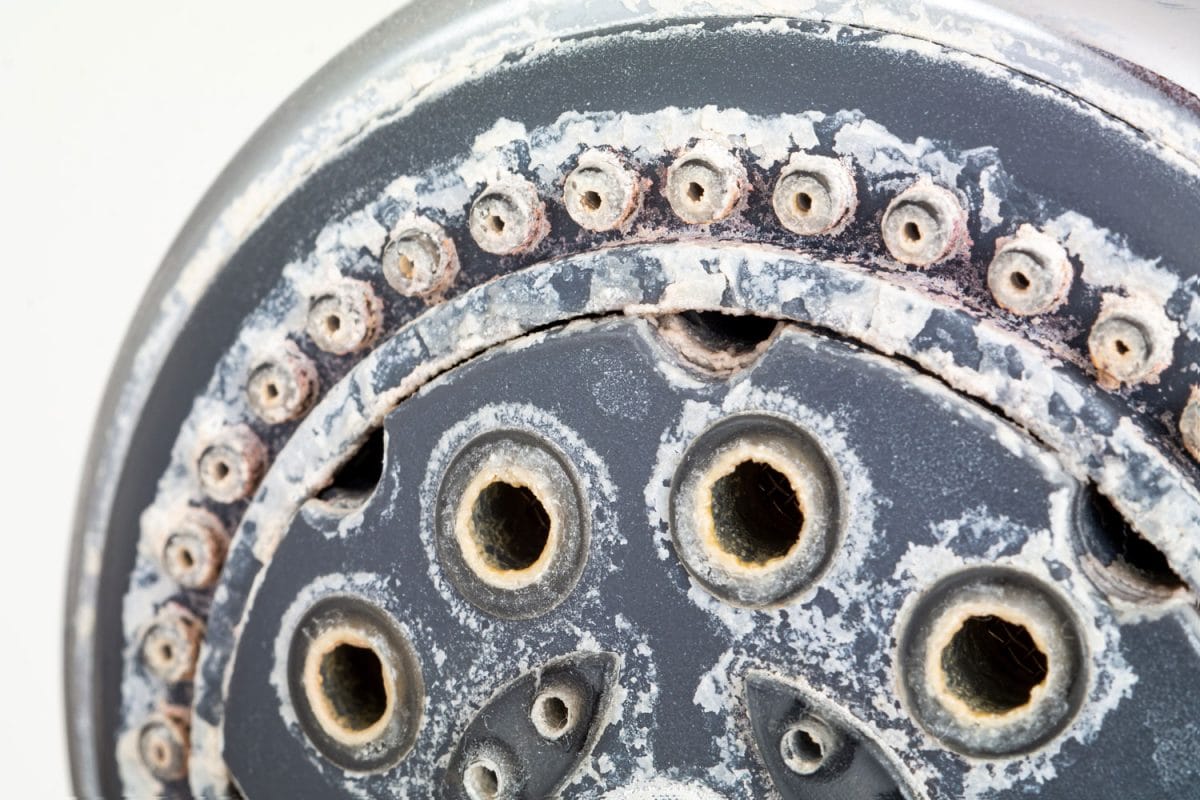
What Do Refrigerator Water Filters Filter Out?
The three big items that fridge filters take out are lead, chlorine, and VOCs. VOCs are chemicals that come from runoff, waste, air pollution, and other common but hard-to-notice places.
However, it's worth noting that a fridge water filter only helps with a few things. In many cases, if your water comes from a public water system, this is enough. If that's all you need from your filter, great!
Just be aware that this might not be enough to fix well water. It's not a water softener. It's not going to help with hard water. You can't expect it to remove things like sulfur or iron.
And it won't prevent bacteria or get rid of health hazards from untreated water. For many people who use well water, a fridge water filter simply isn't needed. In many cases, it doesn't remove much from well water that's a problem.
Do Refrigerator Filters Remove Flouride?
Fridge filters do not remove fluoride. In fact, there's a lot that fridge filters can't remove. This includes fluoride, arsenic, radium, most bacteria, and more.
If you're really concerned about water safety, consider using a home filtration system. It's really the best, most efficient way to get safe drinking water.
A popular example is the reverse osmosis system. In the long run, this can be cheaper than constantly buying bottled water.
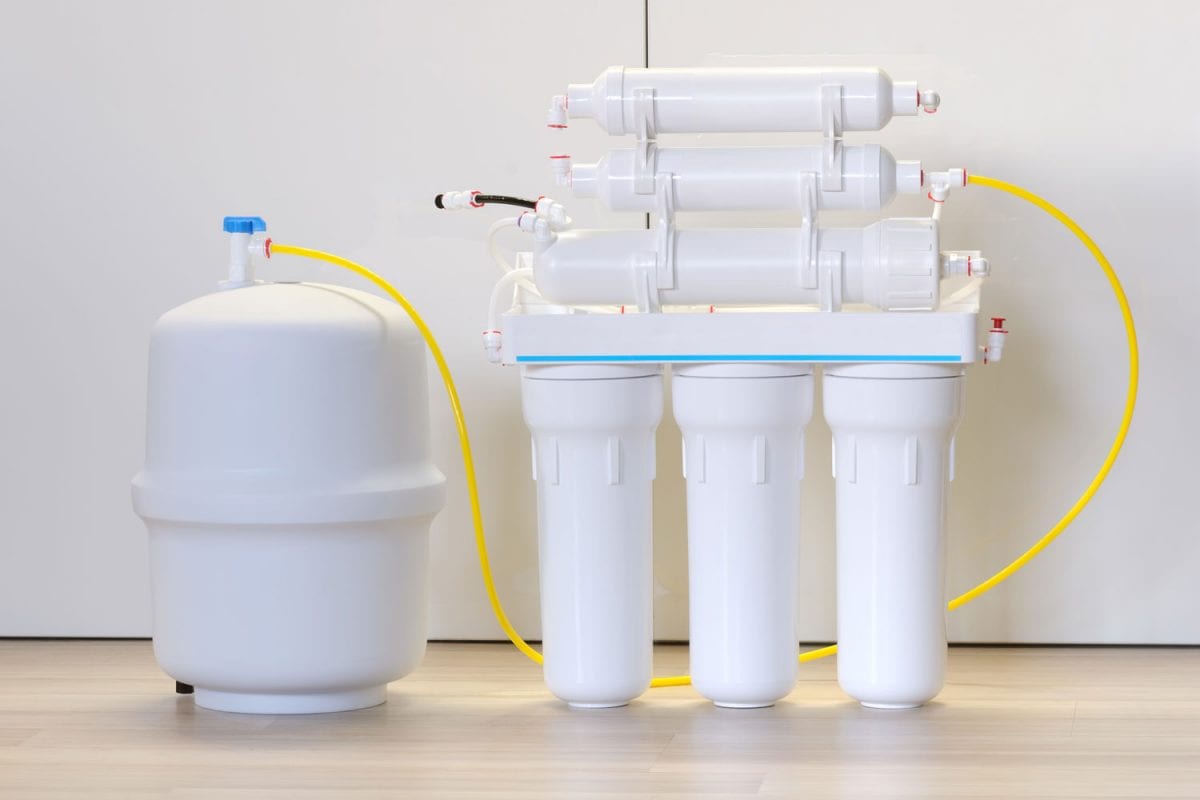
However, it may not always be necessary. Remember that most of the time, well water is safe to drink. If you have the water tested and have never experienced problems with the water, there may be no cause for concern.
Can I Use My Refrigerator Without The Water Filter?
For all the reasons covered, your fridge filter might not be of much use with well water. So can you use your refrigerator and just skip the water filter?
If you're going to add a home filter to fix the water quality, you can save a lot of money by not using fridge filters. If you know for sure the water is safe, then another filter is just an extra step.
In most fridges, this is easy. Just take the filter out. See if the water and icemaker still work. Some fridges do need a filter bypass or bypass plug. This plug tells the fridge to skip the filtration step. You simply remove the old water filter. Put the bypass in just like a new filter.
Usually, this means pushing the bypass in and turning clockwise. It may also mean wiggling the plug into place or pushing until it clicks in place.
In Closing
In the end, it's a matter of personal opinion and your own wants, of course. Just remember that fridge filters are mostly for improving the taste of water.
They are useful for improving the taste of public water by removing things like chlorine. If your water comes from a private well, it may not help remove the minerals that affect the taste.
Fridge filters do not, in any case, make water microbiologically safe. Filters do work at removing some toxins like lead and VOCs. But water still needs testing for bacteria and safety concerns, plus treatment.
Home filtration systems, on the other hand, can also improve the water's taste. But they are largely for getting rid of toxins and making the water safer to drink. If your water quality is poor, you may need a home filtration system. This likely removes the need for a fridge filter altogether.
If you enjoyed this, try:
How Long Should Refrigerator Water Filters Last? [And When To Replace Them]
Does The Refrigerator Water Filter Affect The Ice Maker?

![Installing of a fridge water filter on a modern appliance, Does Fridge Filter Remove Chlorine? [Benefits of Filtration Explained]](https://kitchenseer.com/wp-content/uploads/2022/05/Installing-a-fridge-water-filter-on-a-modern-appliance-250x250.jpg)
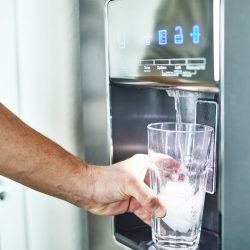
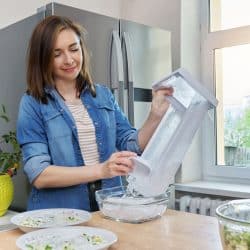
![Removing a refrigerator water filter in a modern appliance, Do Whirlpool Refrigerators Have Water Filters? [And When To Replace Them]](https://kitchenseer.com/wp-content/uploads/2021/12/emale-Hand-Changing-Refrigerator-Water-Filter-250x250.jpg)
![Front of a starbucks store, What Water Filtration System Does Starbucks Use? [& Can You Get It In Your Home?]](https://kitchenseer.com/wp-content/uploads/2022/12/Front-of-a-starbucks-store-250x250.jpg)
